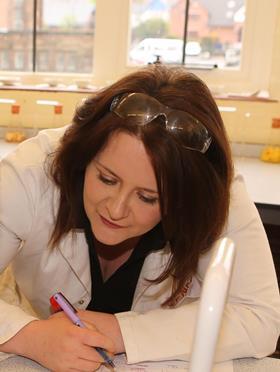Trainee, newly qualified and early career teachers ask the questions you daren’t, and our experts provide the answers. If you’ve got a question, tweet us

Q: I’m looking for my first teaching job. What are some things I should consider when picking a school?
I’m looking for my first teaching job. What are some things I should consider when picking a school?
Anonymous, almost NQT
A: Catherine Smith, head of science There are lots and lots of different schools out there and I think it’s important to see job finding as a two-way process: you’re also looking for a school that suits you and your needs.

Catherine Smith, head of science, answers: There are lots and lots of different schools out there and I think it’s important to see job finding as a two-way process: you’re also looking for a school that suits you and your needs.
For example, one thing I think it’s important to consider is the proximity to your home. A lot of people want to work in their home town – but think about whether you want to see your students when you pop out to the supermarket or the chip shop. If you’d prefer to be a bit distanced, think about the commute and how far you’re willing to travel for a job, remembering you’d be doing it twice a day. Going for an interview is a great way to test out the journey.
Also think about the sort of school you want. Firstly, the age range. Would you prefer to focus just on younger students, or purely on older ones in a sixth form? Or do you want an 11–18 school that has all of them? There’s also a huge range of types of schools out there: academies; single gender, grammar and private schools; technical colleges. What type of school would you like to be in at this point in your career? This links in many ways to the school values. You’ve got some very traditional schools and some more progressive schools. Think about your teaching ethos and have a look through a school’s website and see if your values fit with theirs.
Q: I’ve got a couple of interviews coming up. Are there any red flags I should be looking out for when visiting a school?
I’ve got a couple of interviews coming up. Are there any red flags I should be looking out for when visiting a school?
Jordan, NQT
A: Kristy Turner, school teacher fellow The main red flag for me is if you don’t feel like they’re telling you the whole story. Are you getting to meet the people you really want to meet? Do the students you’re meeting feel hand-picked? A good example is if you don’t get to meet the science department and you’re just kept on your own away from them. Ask about why the role you’re applying for has become vacant, and don’t just ask the people interviewing you.

Kristy Turner, school teacher fellow, answers: The main red flag for me is if you don’t feel like they’re telling you the whole story. Are you getting to meet the people you really want to meet? Do the students you’re meeting feel hand-picked? A good example is if you don’t get to meet the science department and you’re just kept on your own away from them. Ask about why the role you’re applying for has become vacant, and don’t just ask the people interviewing you.
During an interview I will always go out of the room where I’m being kept just to see what’s going on between and during lessons and what the students are like. I once nipped out during lessons on an interview day and there were lots of kids in the corridors not being quick to get to their lessons, not being picked up by SLT – and that told me a lot about the school. In the same school I had kids who were trying to use their mobile phones while I was teaching the interview lesson, while the deputy head was in the room observing. That made me think a lot about the behaviour management structure in the school.
A: Tim Harrison, school teacher fellow and director of outreach I would not just look at students’ behaviour towards each other or the staff, but at staff–staff behaviour as well. I know of someone who had to leave their school because of the staff’s behaviour towards each other, so it’s something to watch out for.

Tim Harrison, school teacher fellow and director of outreach, answers: I would not just look at students’ behaviour towards each other or the staff, but at staff–staff behaviour as well. I know of someone who had to leave their school because of the staff’s behaviour towards each other, so it’s something to watch out for.
I would also expect to see the labs and prep rooms, and if you can’t see them in person, I would expect to have images sent to you. If they’re in a bad state or if they won’t show them to you, that would be a red flag for me.
Q: Any tips on getting ‘the vibe’ of a school, especially if we’re not able to visit?
Any tips on getting ‘the vibe’ of a school, especially if we’re not able to visit?
Sandeep, PGCE student
A: Dorothy Warren, science education consultant The vibe is really important. I go into a lot of schools and you can often tell when you walk in whether a school is a place you’d like to work in or not. Look at the presentations in the corridors and classrooms, this can tell you a lot about the ethos of the school, as well the learning and teaching. It’s quite good to just go to the area and walk around to see how the students arrive in the morning and leave in the evening, what’s their general behaviour like in and out of school and how they’re perceived in the community – that’ll give you a feel of what the school’s like.

Dorothy Warren, science education consultant, answers: The vibe is really important. I go into a lot of schools and you can often tell when you walk in whether a school is a place you’d like to work in or not. Look at the presentations in the corridors and classrooms, this can tell you a lot about the ethos of the school, as well the learning and teaching. It’s quite good to just go to the area and walk around to see how the students arrive in the morning and leave in the evening, what’s their general behaviour like in and out of school and how they’re perceived in the community – that’ll give you a feel of what the school’s like.
Communication is also important. Make sure you’re given the opportunity to meet the science department and the technician(s) – virtually if necessary. See how friendly they are and ask key questions like ‘do people share resources?’ and ‘where do people meet at lunchtime?’ to get a feel for what it would be like to work there.
A: Tim Harrison You can look at the latest Ofsted report for a school – but be aware that these may be out of date, so what’s in the report may not be the way the school is at the moment. Also, if you get the chance to find out what the local papers are for the area, it’s worth looking at those to see how the school is perceived by the public and the community.
Tim Harrison answers: You can look at the latest Ofsted report for a school – but be aware that these may be out of date, so what’s in the report may not be the way the school is at the moment. Also, if you get the chance to find out what the local papers are for the area, it’s worth looking at those to see how the school is perceived by the public and the community.
A: Kristy Turner: If you’re staying local then use your local networks. Ask people at your placement school if they know much about the school, and not just the teachers, ask technicians and TAs as well. Also ask around your course mates on your ITT, they may have had a placement there and be able to give you the inside track. If you can visit, you’ll ultimately get a vibe about a place. I’ve been to schools where they maybe haven’t looked the best on paper, but the staff were nice and they felt like places I could work happily.
Kristy Turner answers: If you’re staying local then use your local networks. Ask people at your placement school if they know much about the school, and not just the teachers, ask technicians and TAs as well. Also ask around your course mates on your ITT, they may have had a placement there and be able to give you the inside track. If you can visit, you’ll ultimately get a vibe about a place. I’ve been to schools where they maybe haven’t looked the best on paper, but the staff were nice and they felt like places I could work happily.









No comments yet